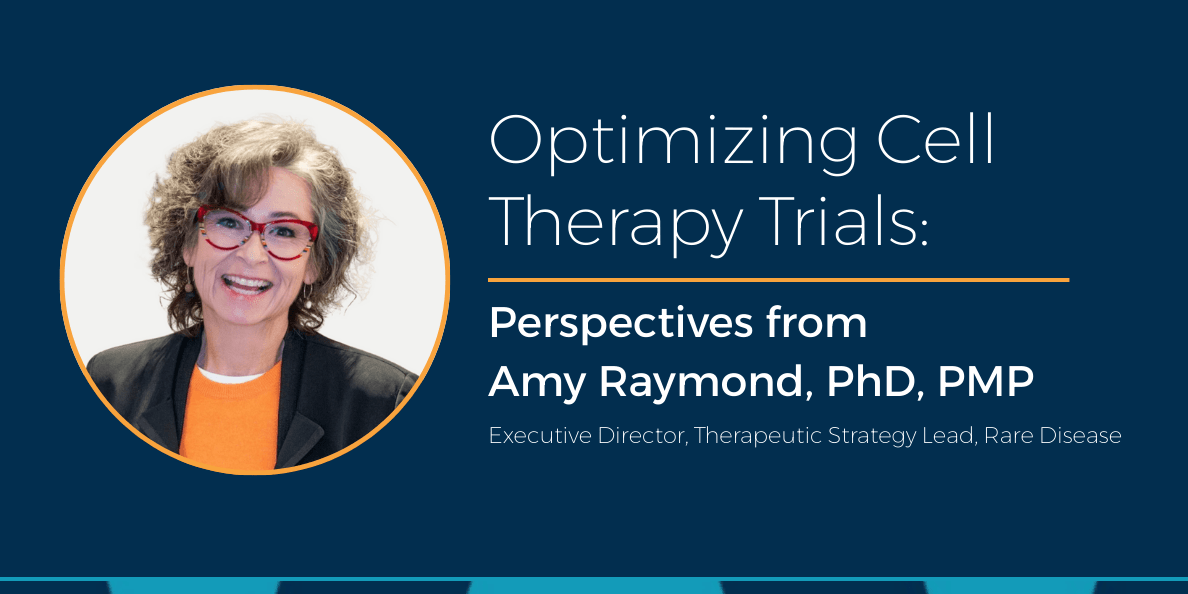
Amy Raymond PhD, PMP, Executive Director, Therapeutic Strategy Lead, Rare Disease
As a Therapeutic Strategist focused on cellular and genetic medicine development, I aim to optimize clinical development programs to maximize speed to market and patient benefit. Gene-modified cell therapies hold tremendous promise for many patient communities and remain an area of continuous and rapid evolution. For example, the year 2024 saw a record number of trial starts, more than any other prior year.
While cell therapy development remains primarily active in oncology, we recognize trends that can impact development optimization, such as increasing activity in solid tumors, continued growth in modalities in addition to CAR T-cell therapy development, and continued pressure on the “go-to” clinical development sites. This is occurring against the backdrop of continued growth in cell therapy development outside of oncology, especially in autoimmune diseases, and an increased appetite amongst drug development teams to open studies outside the U.S.
During our webinar, “Optimizing Cell Therapy Trials of Today: Strategies and Tactics,” airing on October 8th at 11:00 a.m. EST, I will provide some context on contemporary cell therapy development, including dynamic attributes such as therapeutic modalities, cell types, therapeutic areas, and indications, as well as geographic and site-level trends. Make sure you register today!
Why Register?
- Stay informed
- Gain expert insights and practical CGT solutions
- Boost your networking opportunities
Below is a preview of what you can expect:
Geographic & Site-Level Trends
One of the challenges we all face in cell therapy development is the intense pressure on well-established clinical development sites, particularly FACT-accredited academic research sites in the U.S., due to a record number of trial starts. This resource competition can lead to site activation and recruitment delays, resulting in higher development costs. Forward-thinking researchers, here at Worldwide and elsewhere, are expanding the network of cell therapy research sites. This expansion helps alleviate the strain on traditional sites while opening new opportunities for global collaboration and access to broader patient populations. Making the most out of current and developing advanced trial management and patient recruitment technology is another key solution, ensuring that trial conduction is efficient and effective.
Different Therapeutic Areas & Indications
The specialty clinics that treat oncology, rare genetic disorders, autoimmune disorders, endocrinology, and neurological disorders each present unique challenges and opportunities in CGT development. In oncology, the focus is shifting towards more sophisticated and targeted approaches, especially in solid tumors, where traditional therapies have fallen short, opening exciting possibilities for more effective treatments. The rapid evolution of gene-modified cell therapies is promising for rare genetic disorders and autoimmune conditions, and we’re actively familiarizing these research teams and patient communities with advanced treatments. In neurological disorders, the expansion of CGT development, particularly in neuroimmune diseases, is promising.
Be sure to register now for our upcoming webinar and join the conversation!